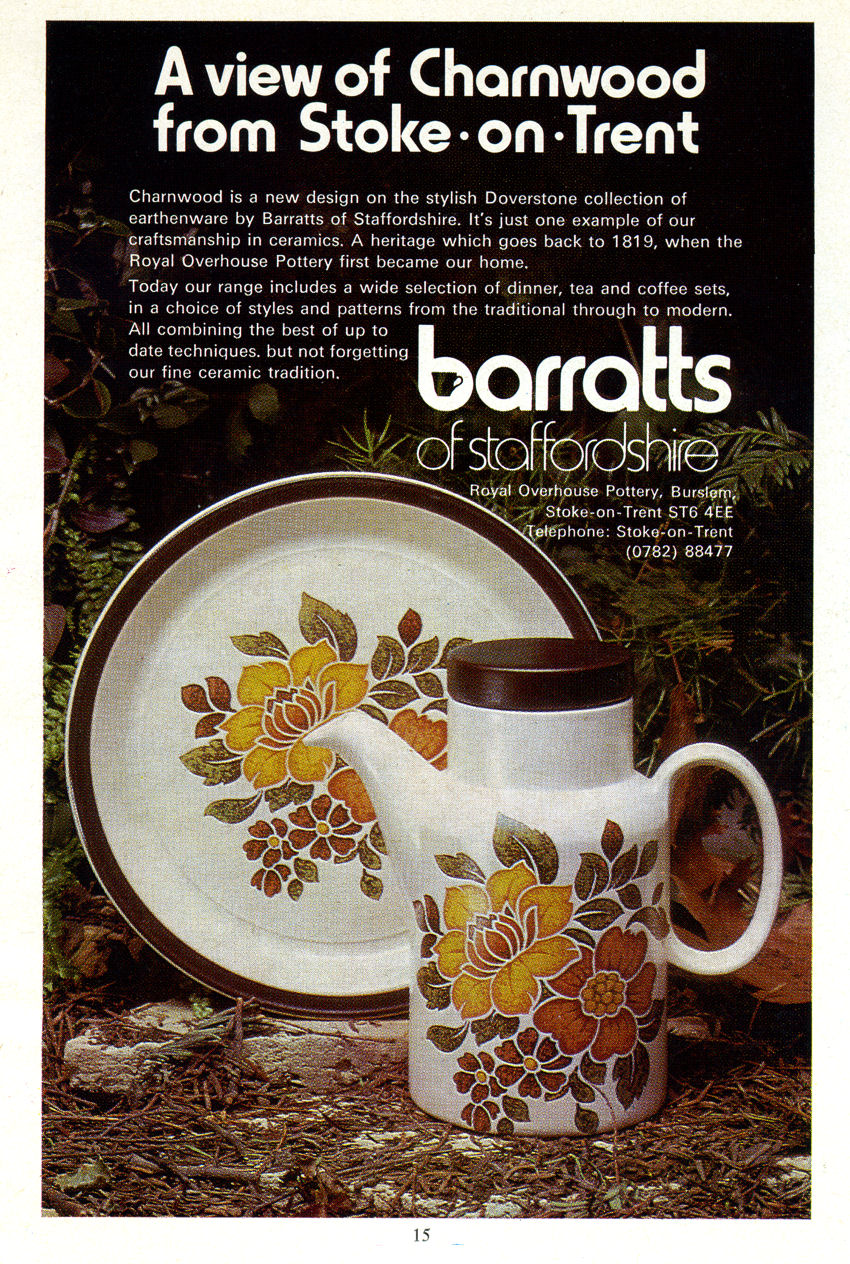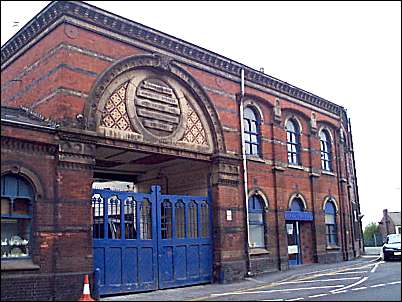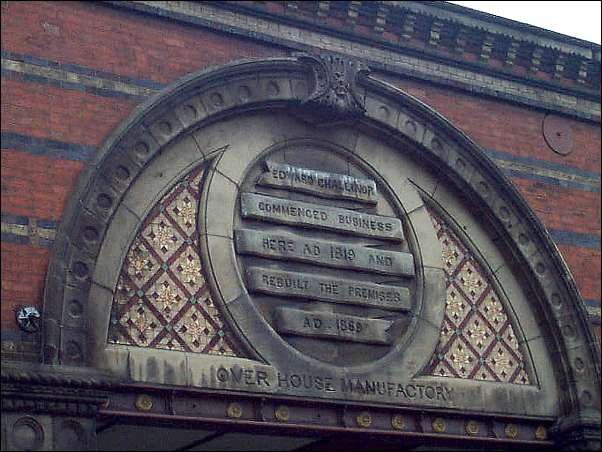"The Overhouse Works — Wedgwood
Place.
In 1787, the record runs,
‘Thomas Wedgwood, Manufacturer of Cream-coloured Ware and China glazed
Ware, painted with blue’ worked the Overhouse Pottery at Burslem. The
old works were situated at the back and side of the Overhouse, with
entrance in Wedgwood Place, where that street joined Scotia Road.
Early in the nineteenth
century, the Overhouse Works were occupied by Goodfellow & Bathwell, who
were succeeded in 1819 by Edward Challinor, and from about 1828 by
William Pointon. In 1856, they passed to Morgan, Williams & Co.,
afterwards to Morgan, Wood & Co. who, in 1861, were succeeded by Allman,
Broughton & Co., and later by Robinson, Kirkham & Co.
In 1869, the old works
were entirely taken down and a new and extensive manufactory was erected
with all the latest improvements of machinery and appliances, the
jiggers all being driven by steam-power and the drying stoves heated by
exhaust steam.
The rebuilding, after half a century of active occupation by one person,
was thus commemorated in ornamental scroll stonework over the entrance:
‘Edward Challinor commenced business here A.D. 1819, and rebuilt the
premises A.D. 1869.’
The new manufactory was
opened in 1870 by Ralph Hammersley, who removed here from the Church
Bank Pottery at Tunstall and who had previously been engaged for twenty
years with Mr. Challinor. In 1833, the firm’s style was changed to Ralph
Hammersley & Sons and as such remained until sold in 1905 to T. Gater.
Twentieth-century owners
include Gater, Hall & Co., King & Barratt, and Barratts of Staffordshire
Ltd.
The goods produced by Hammersley were the ordinary description
earthenware in services of various kinds and the usual classes of useful
articles which (besides a good home trade) were shipped in large
quantities to the United States, Canada and Sweden. Stoneware jugs were
also produced. The mark was the initials R.H. & S. in various forms
until 1905."
Jewitt's
Ceramic Art of Great Britain 1800-1900
![]()


